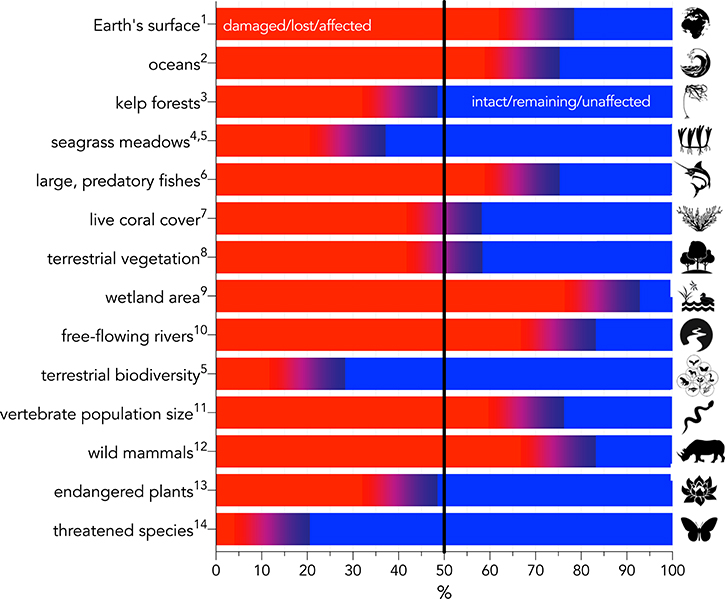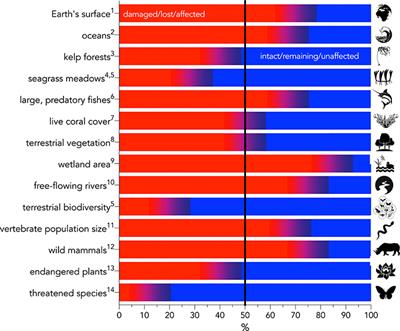A recent report from renowned scientists on the loss of biomass and biodiversity on Earth.
The sixth mass extinction (a loss of ~75% of all species on the planet) is now a certainty, according to them. The only change compared to the five previous ones, is the catastrophic rapidity of it. We’ll have achieved it within a few hundreds of years, whereas the previous mass extinctions are considered within a time-span up to three millions years.
Here is a graph illustrating what we have done:

I don’t know what to say anymore. The sheer extent of destruction already committed, all of it in the last thirty years, is terrifying, and to be completely honest, damning.
Here is the conclusion to this report, which is well worth reading in it’s entirety:
Conclusions
We have summarized predictions of a ghastly future of mass extinction, declining health, and climate-disruption upheavals (including looming massive migrations) and resource conflicts this century.
Yet, our goal is not to present a fatalist perspective, because there are many examples of successful interventions to prevent extinctions, restore ecosystems, and encourage more sustainable economic activity at both local and regional scales. Instead, we contend that only a realistic appreciation of the colossal challenges facing the international community might allow it to chart a less-ravaged future. While there have been more recent calls for the scientific community in particular to be more vocal about their warnings to humanity (Ripple et al., 2017; Cavicchioli et al., 2019; Gardner and Wordley, 2019), these have been insufficiently foreboding to match the scale of the crisis.
Given the existence of a human “optimism bias” that triggers some to underestimate the severity of a crisis and ignore expert warnings, a good communication strategy must ideally undercut this bias without inducing disproportionate feelings of fear and despair (Pyke, 2017; Van Bavel et al., 2020).
It is therefore incumbent on experts in any discipline that deals with the future of the biosphere and human well-being to eschew reticence, avoid sugar-coating the overwhelming challenges ahead and “tell it like it is.” Anything else is misleading at best, or negligent and potentially lethal for the human enterprise at worst.





